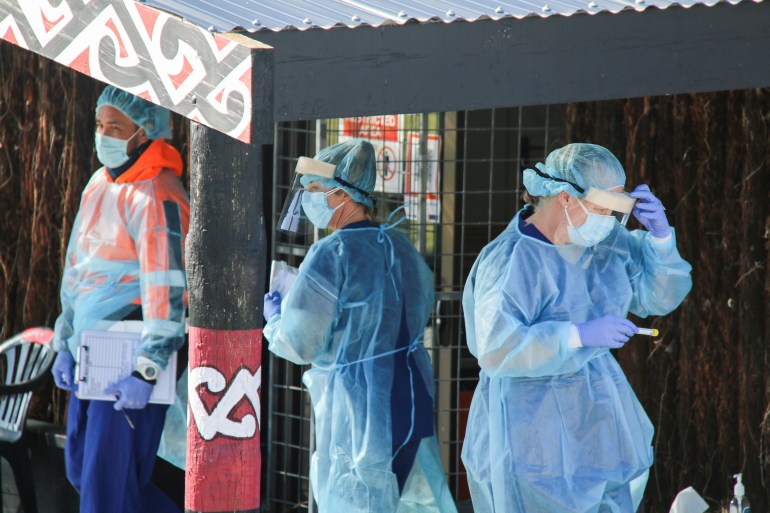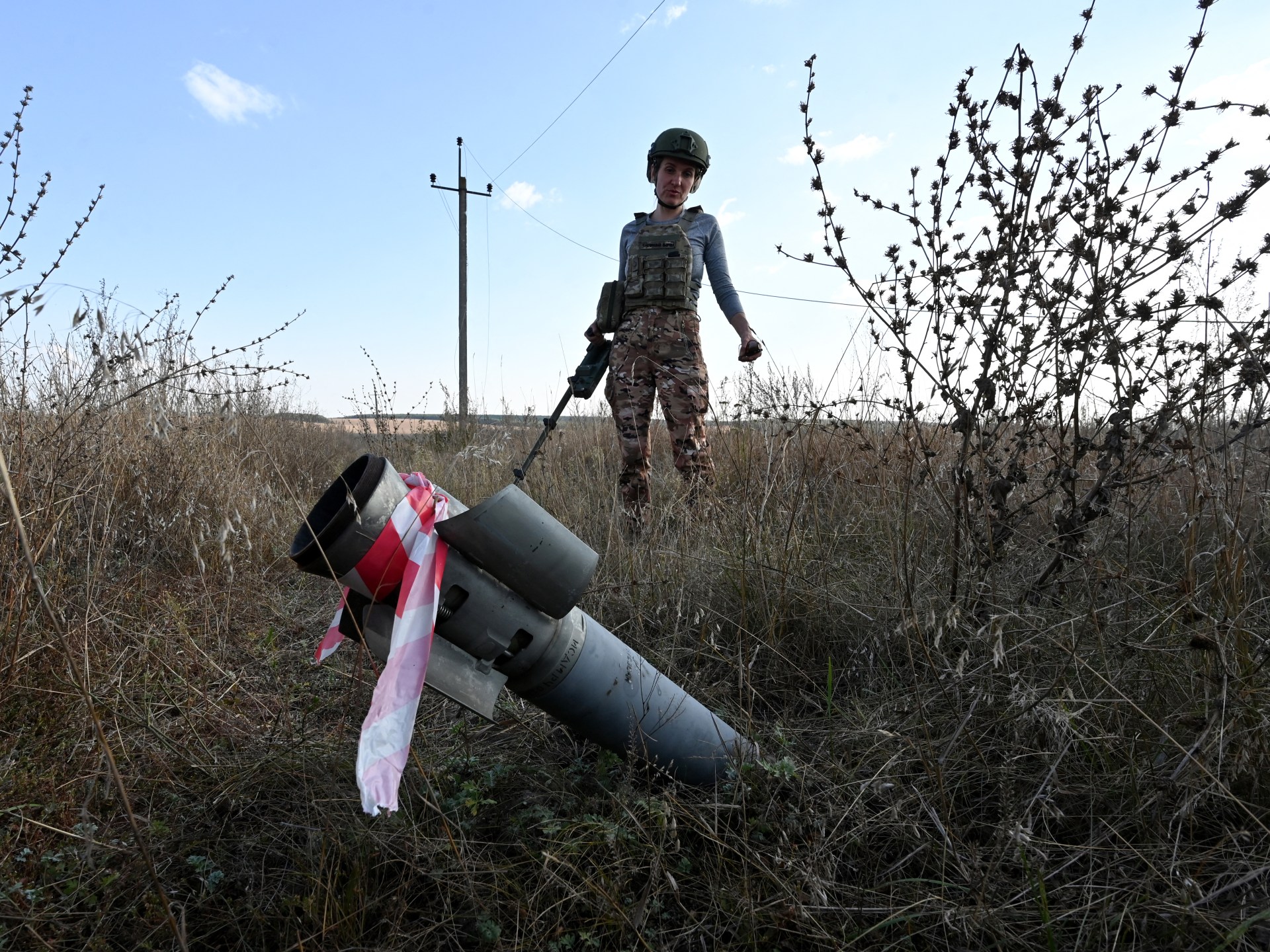Ardern moves to relax New Zealand’s tough border controls | Coronavirus pandemic News
Prime Minister acknowledges heartache caused by strict quarantine rules, but says measures saved lives.
New Zealand Prime Minister Jacinda Ardern says the country will start reopening its borders in a phased plan beginning with its own citizens, as it relaxes a strict quarantine system that was imposed at the start of the pandemic.
The five-stage plan will start with fully vaccinated New Zealanders in neighbouring Australia who will be allowed to return home starting from midnight on February 27, and will be extended to fully vaccinated New Zealanders elsewhere in the world from March 13.
The government envisages borders will be completely open to all by October.
“We are well on our way to reaching that destination,” Ardern said in Auckland of the full reopening. “But we are not quite there yet.”
Instead of going into government quarantine hotels – where spaces have been limited – fully vaccinated arrivals will be allowed to self-isolate for 10 days.
New Zealand imposed the stringent border controls as part of its strategy to eliminate the virus.
The country has recorded nearly 17,000 cases and only 53 deaths.
Al Jazeera’s Wayne Hay, who is reporting from Tauranga in New Zealand, said that based on those numbers, the “elimination strategy” is considered a “success”.
“But it has to come to an end at some stage.”
Bottleneck
Last year, New Zealand rolled out a “travel bubble” policy with Australia, but that was abruptly ended after cases in travellers created a new cluster of cases.
The new plan comes as the more contagious Omicron variant spreads within New Zealand, and the border controls are coming to be seen as an obstacle to efforts to return to normality.
At the moment, citizens who have been allowed into the country through a lottery system are required to stay in a state-run quarantine facility for 10 days, but the lack of spaces has left many people unable to return home.
 Almost four million people aged 12 and above have been fully vaccinated, or an equivalent of 93 percent, according to the latest data of the ministry of health [File: Adam Bradley/SOPA Images/LightRocket via Getty Images]
Almost four million people aged 12 and above have been fully vaccinated, or an equivalent of 93 percent, according to the latest data of the ministry of health [File: Adam Bradley/SOPA Images/LightRocket via Getty Images]Ardern herself acknowledged that the border controls have become a source of inconvenience to many, even as she stressed that it also saved lives.
“There is no question that for New Zealand, it has been one of the hardest parts of the pandemic. But the reason that it is right up there as one of the toughest things we have experienced is, in part, because large-scale loss of life is not.”
“There was life before, and now life with COVID, but that also means there will be life after COVID too, a life where we have adapted, where we have some normality back,” Ardern said.
New Zealand has fully vaccinated about 93 percent of its population over the age of 12.
Ardern said the border controls had given the country the time needed to get people vaccinated and ensure the health system was not overwhelmed with patients.
Under the reopening of the border, some critical foreign workers will also be allowed into the country along with citizens on March 13, with as many as 5,000 international students a month later. Australians and others who do not need visas are likely to be allowed in from late July, with everyone else being able to enter from October.




